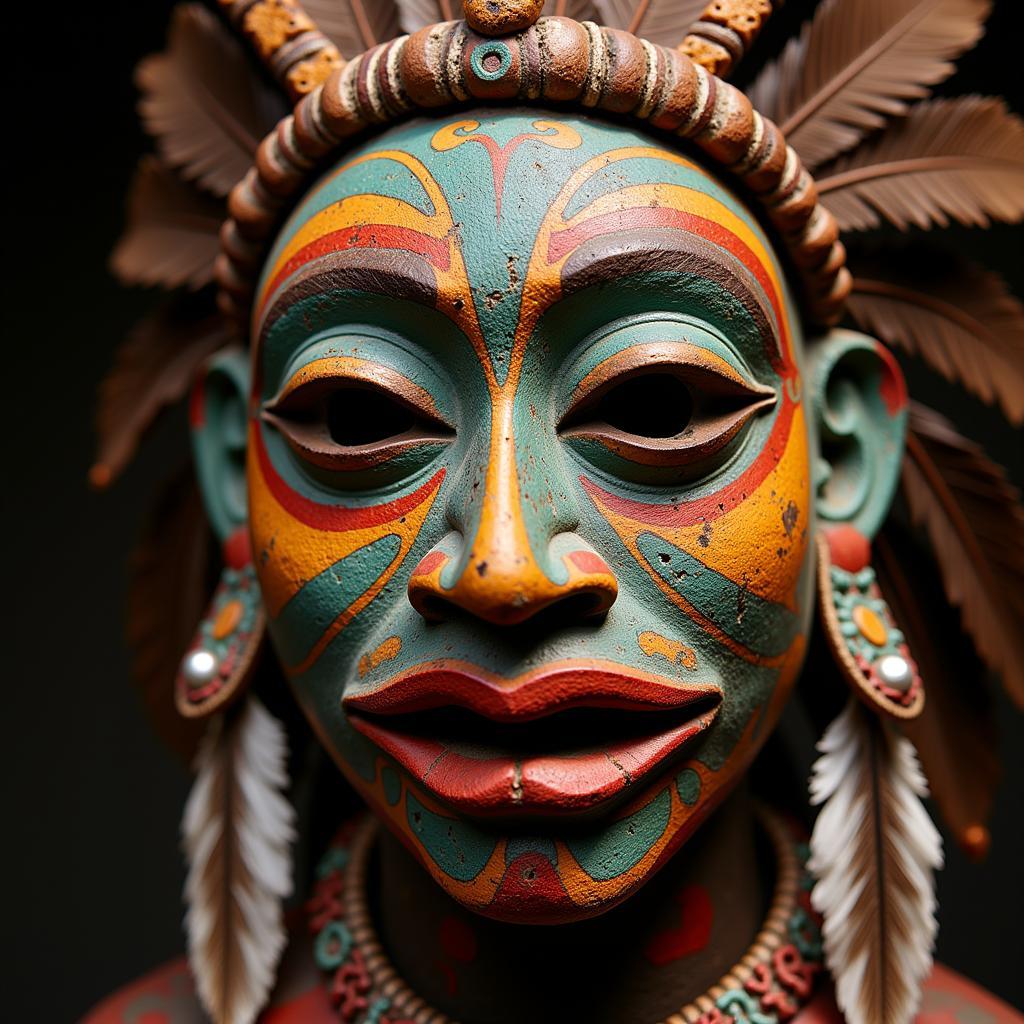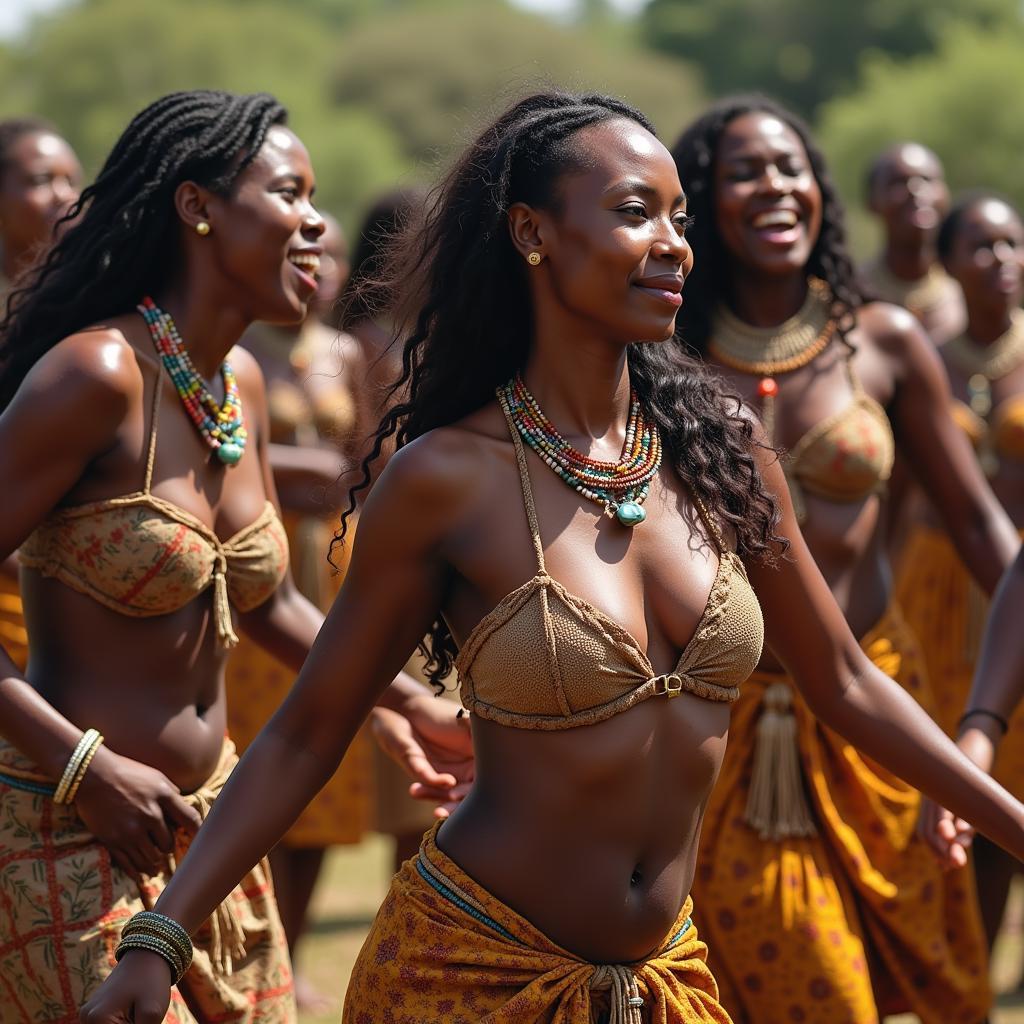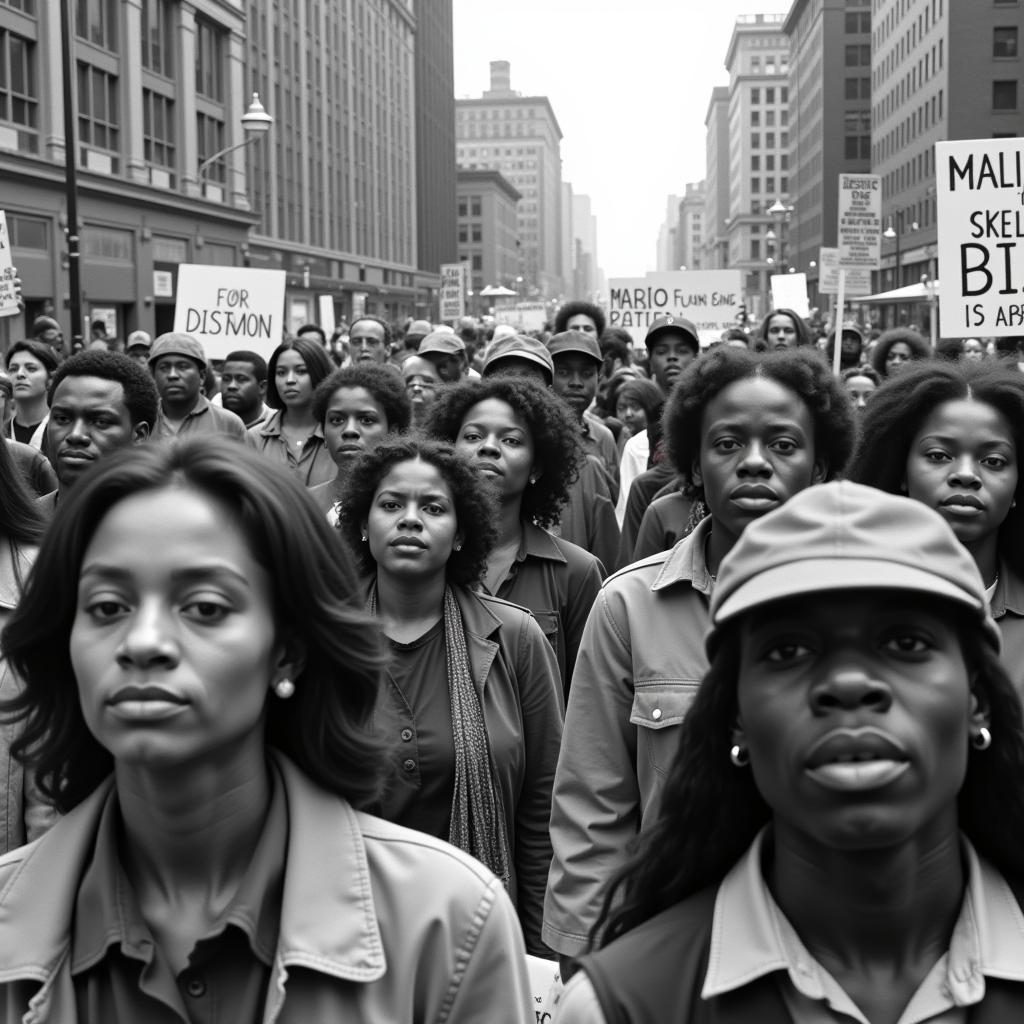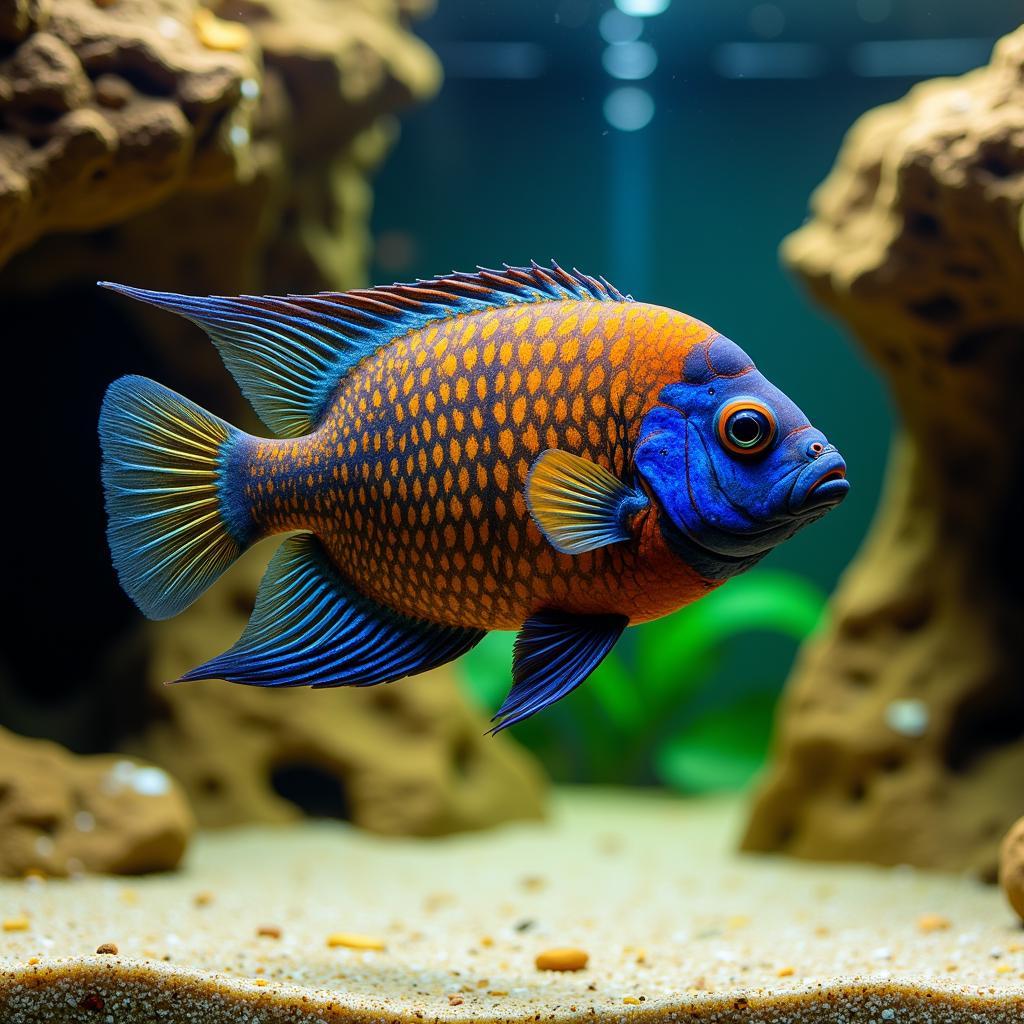The Ultimate Guide to African Hair Care
African hair, in all its glorious textures and curl patterns, is a crown of beauty. From the tight coils of 4C hair to the loose waves of 3A curls, understanding how to care for and style this hair type is essential. This comprehensive guide delves into the world of African Hair Care, offering tips, tricks, and insights to help you embrace and enhance your natural beauty.
Unveiling the Secrets of African Hair
African hair is unique not just in its appearance but also in its structure. The tightly coiled strands have a tendency to be drier than other hair types due to the way the natural oils travel down the hair shaft. This natural dryness makes proper hydration and moisture retention key factors in maintaining healthy and vibrant hair.
Essential African Hair Care Practices
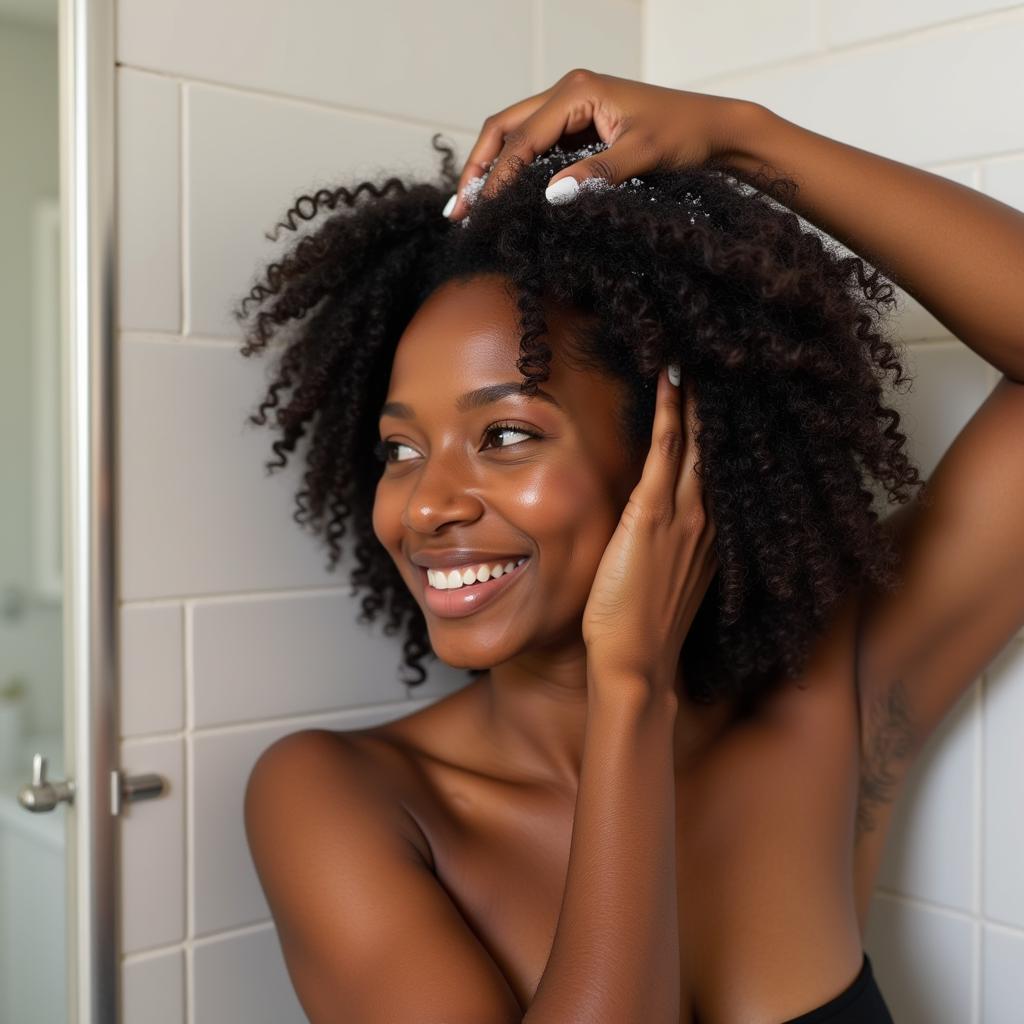 woman-washing-african-hair
woman-washing-african-hair
Cleansing and Conditioning: The Foundation
- Gentle Cleansing: Opt for sulfate-free shampoos designed for African hair, as they cleanse the scalp without stripping away essential oils.
- Deep Conditioning: Indulge in weekly deep conditioning treatments to replenish moisture and strengthen hair strands. Look for products rich in natural emollients like shea butter, coconut oil, and argan oil.
- Co-Washing: Between shampoo washes, try co-washing, which involves cleansing the hair with a conditioner. This method helps retain moisture and prevent dryness.
Moisturizing and Sealing: Locking in Hydration
- The LOC (Liquid-Oil-Cream) Method: A popular technique for maximizing moisture retention. Start with a water-based leave-in conditioner (Liquid), followed by a sealing oil like jojoba oil or castor oil (Oil), and finish with a butter-based cream to lock everything in (Cream).
- Protective Styling: Explore protective hairstyles like braids, twists, or locs. These styles protect your hair from environmental damage and minimize manipulation, promoting healthy growth.
Detangling: Handling with Care
- Finger Detangling: The gentlest method for detangling, especially for tightly coiled hair. Carefully separate knots with your fingers, starting from the ends and working your way up to the roots.
- Wide-Tooth Comb: Use a wide-tooth comb to gently detangle your hair, working in small sections to avoid breakage.
- Detangling Products: Invest in a good detangling spray or conditioner to ease the process and minimize hair damage.
Common African Hair Care Myths Debunked
Myth: African hair is strong and doesn’t break easily.
Fact: While African hair strands are often thick, they are also prone to breakage due to their curly structure. Gentle handling and proper moisture are crucial.
Myth: You shouldn’t wash African hair frequently.
Fact: Cleanliness is important for all hair types. Washing your hair regularly (weekly or bi-weekly) helps remove product buildup and promotes a healthy scalp.
Myth: Greasing the scalp is necessary for African hair.
Fact: While natural oils are beneficial, excessive greasing can clog pores and hinder hair growth. Focus on moisturizing the hair shaft rather than the scalp.
Expert Insights on African Hair Care
“Understanding your hair porosity is essential for effective moisture retention,” says renowned hairstylist Abena Naa, a specialist in natural hair care. “Low porosity hair requires water-based products, while high porosity hair benefits from heavier creams and butters.”
Conclusion: Embrace Your Natural Crown
Caring for African hair is an empowering journey of self-discovery and self-love. By understanding the unique needs of your hair type and adopting a consistent hair care routine, you can embrace the natural beauty of your coils, curls, and kinks. Remember, healthy hair is beautiful hair, and with the right knowledge and practices, you can flaunt your crown with pride.
FAQs about African Hair Care
Q: How often should I wash my African hair?
A: Washing your hair once a week or every other week is a good starting point. Adjust based on your hair’s needs and scalp condition.
Q: Can I use heat styling tools on African hair?
A: Yes, but use heat sparingly and always apply a heat protectant beforehand to minimize damage.
Q: How can I prevent breakage?
A: Be gentle when detangling, avoid tight hairstyles, and keep your hair moisturized.
Q: What are some good protective hairstyles?
A: Braids, twists, locs, and cornrows are all excellent protective styles for African hair.
Q: How can I find the right products for my hair type?
A: Experiment with different products and pay attention to how your hair responds. Consider your hair’s porosity, density, and specific needs.
For additional information and guidance on African hair care, explore our website for more insightful articles.
Need personalized hair care advice? Contact our expert team at +255768904061, email us at kaka.mag@gmail.com, or visit us at Mbarali DC Mawindi, Kangaga, Tanzania. Our dedicated customer care team is available 24/7 to assist you.
